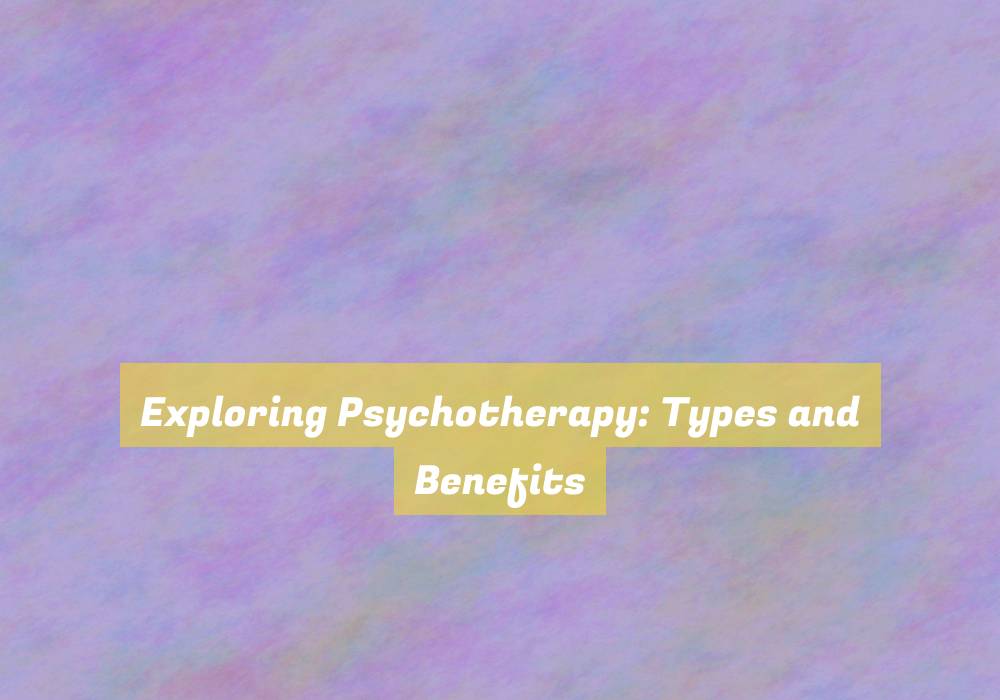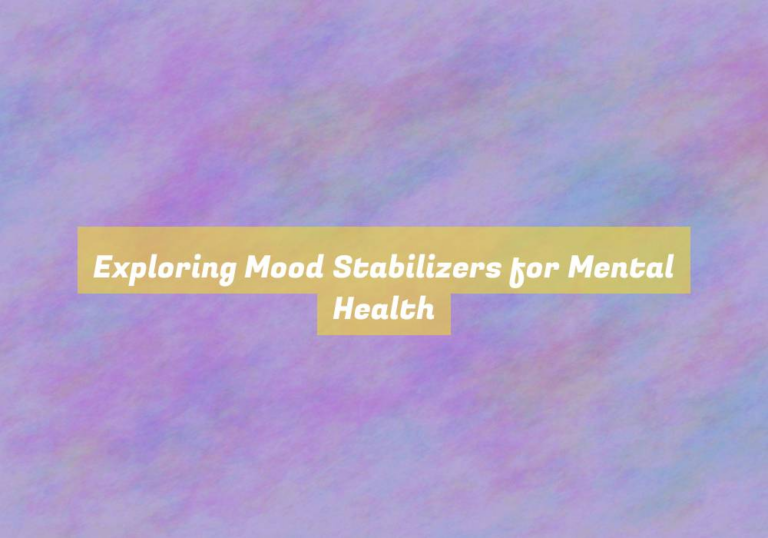Exploring Psychotherapy: Types and Benefits
If youG??ve ever felt the need for a little extra support in navigating lifeG??s challenges, you may want to consider exploring the world of psychotherapy. ThereG??s a wide range of types and approaches that can offer valuable tools for managing stress, improving relationships, and addressing mental health concerns.
From cognitive-behavioral therapy to psychodynamic therapy, each approach brings its own unique benefits and insights. But what exactly are these benefits, and how might they apply to your own life?
As you continue through this discussion, youG??ll gain a deeper understanding of the various types of psychotherapy and the potential advantages they can offer.
Common Types of Psychotherapy
When considering psychotherapy, itG??s important to understand the common types and their distinct approaches to addressing mental health concerns.
Cognitive-behavioral therapy (CBT) is widely used and focuses on changing negative thought patterns and behaviors to improve mental well-being. ItG??s effective for treating anxiety, depression, and PTSD.
Another common type is psychodynamic therapy, which delves into unconscious thoughts and past experiences to address present-day issues. This type often takes longer to show results but can be beneficial for understanding deep-rooted emotions and behaviors.
Additionally, thereG??s humanistic therapy, which emphasizes personal growth and self-actualization, guiding individuals to explore their feelings and take responsibility for their choices.
Family therapy is another prevalent approach, involving the entire family in the therapeutic process to improve communication and resolve conflicts.
Lastly, group therapy provides a supportive environment where individuals can share experiences and learn from others facing similar challenges.
Understanding these common types can help you make informed decisions about which approach may best suit your needs.
Benefits of Psychotherapy
Now that youG??re familiar with the common types of psychotherapy, letG??s explore the numerous benefits that psychotherapy can offer for mental well-being.
Psychotherapy provides a safe and supportive space for you to openly express your thoughts and emotions, helping you gain a deeper understanding of yourself and your experiences. It can assist in managing and overcoming mental health challenges such as anxiety, depression, and trauma by equipping you with coping mechanisms and strategies to navigate difficult situations.
Additionally, psychotherapy fosters improved communication and interpersonal skills, which can enhance your relationships and social interactions. By working with a trained therapist, you can develop a strong sense of self-awareness and self-compassion, leading to increased self-esteem and confidence.
Moreover, psychotherapy aids in identifying and changing negative thought patterns and behaviors, promoting a more positive and adaptive mindset. It also offers long-term benefits by equipping you with the tools to better handle future stressors and challenges.
Specialized Approaches in Psychotherapy
Specialized approaches in psychotherapy encompass tailored techniques and interventions to address specific mental health concerns and individual needs. These approaches are designed to cater to particular issues such as trauma, eating disorders, personality disorders, and more.
For instance, Eye Movement Desensitization and Reprocessing (EMDR) is a specialized therapy used for individuals whoG??ve experienced trauma. Dialectical Behavior Therapy (DBT) focuses on managing intense emotions and improving relationships, making it particularly effective for individuals with borderline personality disorder. Additionally, cognitive-behavioral therapy (CBT) has specialized adaptations for various conditions, such as CBT for insomnia (CBT-I) or CBT for social anxiety.
Furthermore, specialized approaches often incorporate cultural considerations, taking into account the unique experiences and beliefs of diverse populations. This can be especially beneficial for individuals from marginalized communities or those with specific cultural backgrounds.
Integrating Psychotherapy Into Daily Life
To incorporate psychotherapy into your daily life, consider setting aside dedicated time for self-reflection and emotional processing. This could involve finding a quiet space where you can engage in introspective activities such as journaling, meditation, or deep breathing exercises. By making this a regular habit, you create a space for exploring your thoughts and emotions, allowing for greater self-awareness and understanding.
Additionally, try to incorporate the insights and coping strategies discussed in therapy sessions into your daily routines. This might involve practicing mindfulness during everyday activities, implementing communication techniques learned in therapy with your loved ones, or using relaxation techniques to manage stress.
ItG??s also important to prioritize self-care by engaging in activities that bring you joy and relaxation. This could be anything from going for a walk in nature, reading a book, or engaging in a hobby. By integrating these practices into your daily life, you reinforce the work done in therapy and promote ongoing emotional well-being.
Conclusion
So, whether youG??re dealing with anxiety, depression, or just need someone to talk to, psychotherapy offers a variety of approaches to help you navigate lifeG??s challenges.
From cognitive-behavioral therapy to mindfulness-based therapy, there are options tailored to fit your unique needs.
The benefits of psychotherapy are numerous, including improved mental health, better relationships, and a greater sense of self-awareness.
Consider integrating psychotherapy into your daily life to cultivate a healthier and more fulfilling existence.







